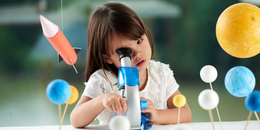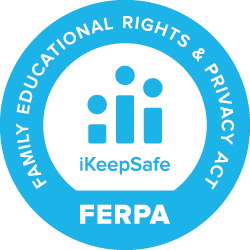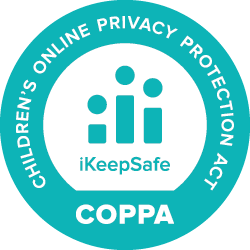Engage Young Learners in STEM Experiences with JASON Early Childhood
Preparing Students with Lifetime Skills and Mindsets for Successful Learning
STEM is a way of experiencing the world that is creative, inquisitive, and persistent.
JASON Learning’s Early Childhood STEM program focuses on the characteristics of STEM learning, as well as the social-emotional, cognitive, and language and literacy development of early learners. This program was developed in partnership with Dr. Juliana Texley, Past President of the National Science Teaching Association.
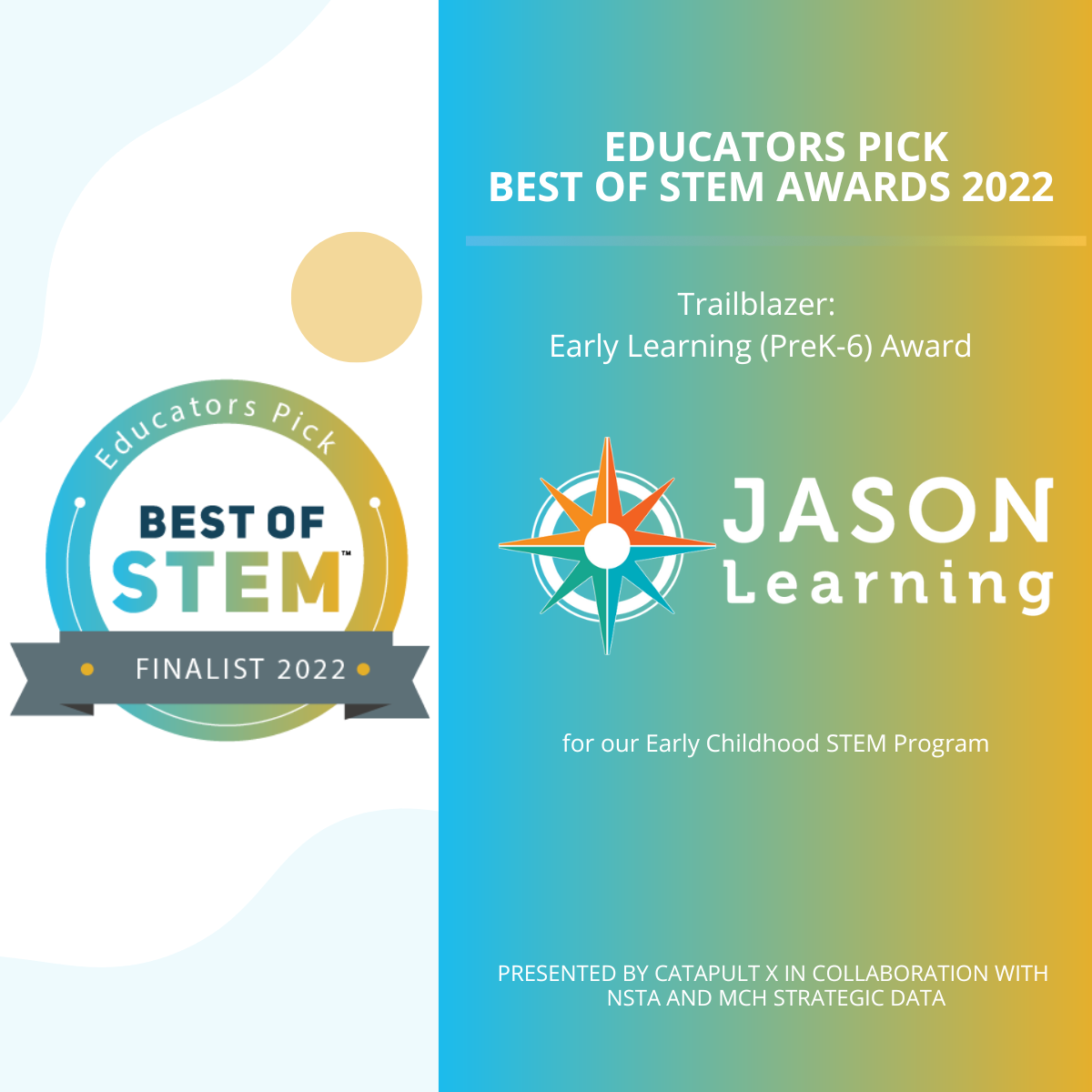
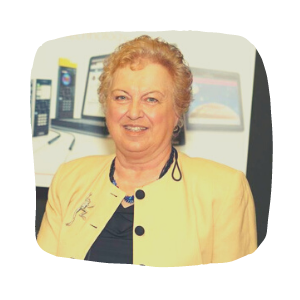
Meet Dr. Juliana Texley
Early Childhood STEM
Missions
The three Missions in JASON Early Childhood STEM are unique in several ways:
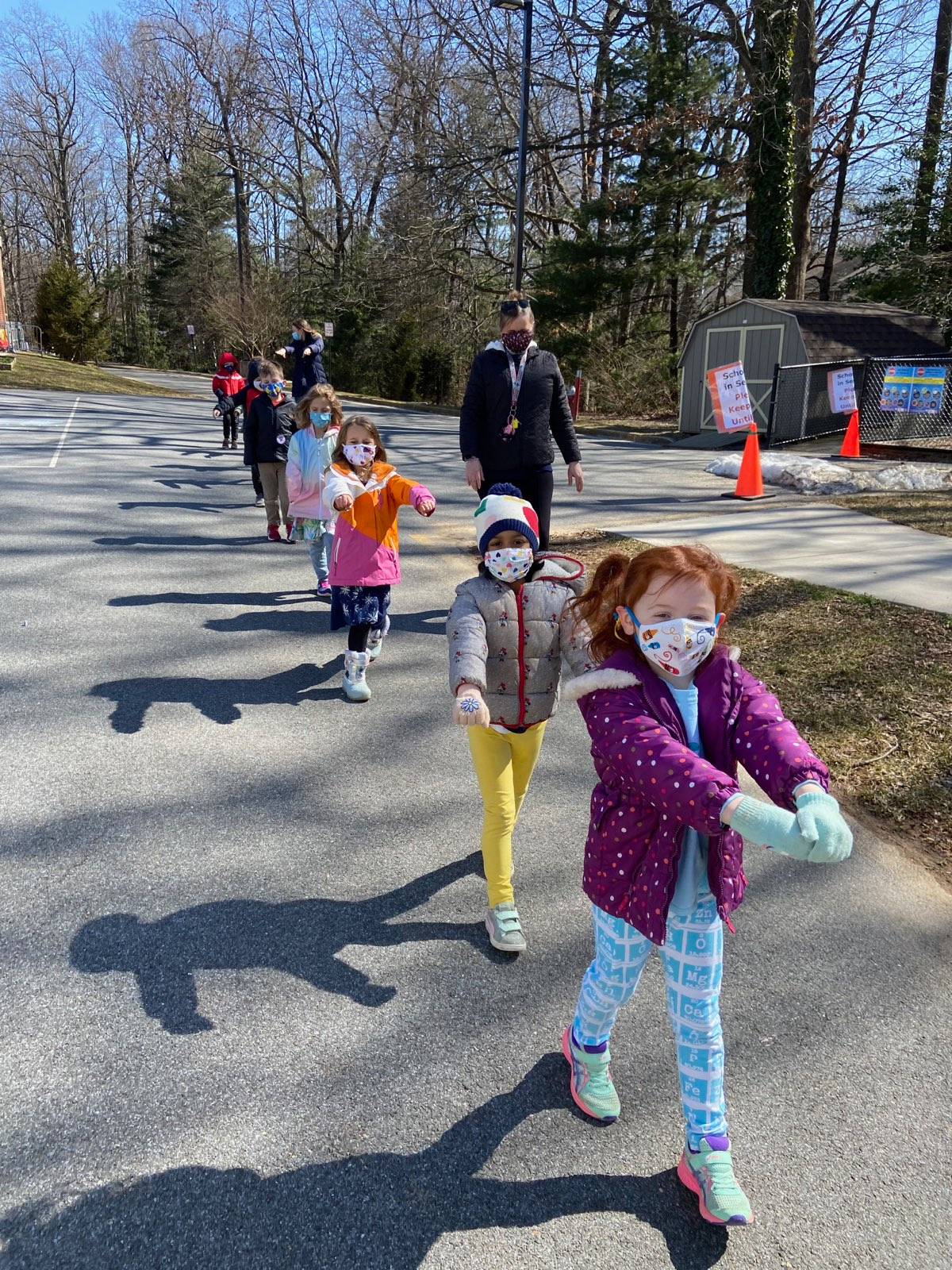
- Each mission includes several hands-on activities with opportunities for exploration and play, connections to math, music and art, and teacher resources with a rich library of early childhood literature integrated throughout.
- The missions are continuous and progressive; not just a collection of independent activities.
- The progressions focus on habits of mind, with support for assessment of these goals consistent throughout.
- The activities are specifically structured for guides in any environment (K-12, Head Start, After School and Informal.)
- Professional development supports communication among guides in all settings.
- Nationally award-winning children’s literature is integrated through all lessons. Best practice dialogue supports the readings with skill-building.
- Mathematics and technology support the collection of data. Students argue from that evidence and use it to support their involvement in summative projects.
Photo courtesy of Fairfax County Public Schools, VA

Mission 1: Ecology: STEM & Bloom
The magic of change is always present in children’s lives. There is no STEM topic that could be more fascinating than the growth of living things around them. Gardening is the ultimate interdisciplinary experience, bringing together art and science, math and literature, bounty and beauty. In STEM & Bloom, young learners explore what plants need for survival – sun, water, soil, color, and engineer a themed garden.

Mission 2: Physical Science: The Physics Fair
Many people perceive physics as difficult. Yet, it is the most basic and natural of the sciences. The Physics Fair takes young explorers on an adventure to observe and test their environment with Isaac Newton “at their side.” Young learners explore light and forces and interactions through the lens of theme parks and playgrounds!

Mission 3: Earth Science: Water, Wind, and Weather
The science of our Earth combines the physics, chemistry, and biology of the planet to describe our earth system. It also awakens a child’s senses: rain on a face, the ooze of mud, the ups and downs of the path to school, are all Earth science concepts. Water, Wind and Weather invites the youngest of learners to explore their world through the lens of storm preparedness. Currently under development.
Students immersed in JASON’s STEM & Bloom build a sundial clock!
Video Courtesy of Newport News Public Schools, VA
Bridges between home, school, and informal settings are vital.
Early Childhood Educator Training
STEM is more than understanding subjects. It includes habits of mind that are especially vital in the early childhood year-creativity, observation, communication and persistence. Learning to be a great STEM mentor or guide involves discovery and investigation and is best supported by a network of peers.
JASON offers a variety of training options – both in-person and virtual. The JASON Early Childhood training is designed to provide coordinated professional development to formal and informal educators in STEM. JASON fully integrates content with literacy, the arts, and STEM habits of mind and is designed to help formal and informal educators work together.
Training programs are for any early childhood practitioner or caregiver and parents and others in the child’s learning world are able to also participate. Training sessions also model and demonstrate developmentally-appropriate strategies and solutions to meeting the challenges of remote and blended environments – with activities designed to flex as conditions change.
Visit our Professional Development page to learn more about our ongoing Early Childhood PD opportunities. College Credit for participation in training programs is also available! Contact amy@jason.org to learn more.


